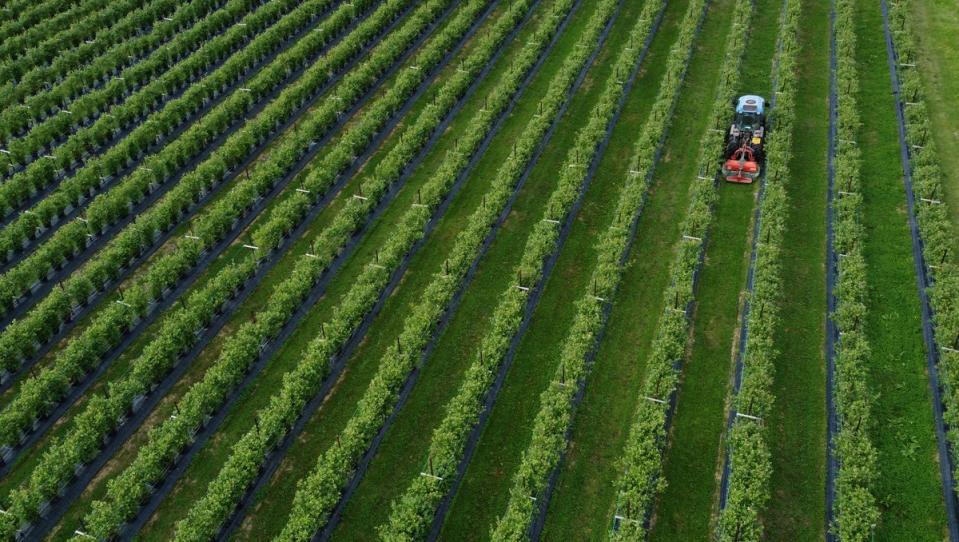Gas prices to push up farmers’ fertiliser costs by nearly £2bn

The price of gas will push up farmers’ fertiliser costs by close to £2 billion over four years, costs that are likely to feed through to food prices, according to new analysis.
Fertiliser bills were up by around £760 million for Britain’s farmers this year and last due to the high gas prices. Over the next two years farms could have to cough up an additional £1.1 billion if gas markets do not calm down.
Analysis from the Energy and Climate Change Intelligence Unit (ECIU), which was shared with the PA news agency, showed the pressure facing farmers.
The growers are not just dealing with fertiliser costs. The price of gas has naturally pushed up their energy bills as well, and this summer’s hot and dry weather might have cut some harvests in half.
Matt Williams, climate and land programme lead at the ECIU, said: “Farmers are being hit by high fertiliser bills, high energy costs and now a drought.
“At the base of all of these is gas which is destabilising UK food security and our climate.
“This triple whammy could push food bills even higher than they already are.”

This would add to the pain already felt by households around the UK and elsewhere across the world.
Inflation is set to peak at above 13% this autumn, according to forecasts from the Bank of England.
This is largely driven by the price of gas, which has soared for several reasons, including Russia’s war against Ukraine.
Gas is a key ingredient in many fertilisers so farmers will likely face high costs for as long as gas prices remain inflated.
Mr Williams said there are “innovative British solutions” for non-gas based fertilisers which are also better for the environment.
“Expanding renewables on farms will also help bring down costs and make farmers’ revenues more resilient,” he added.
One such option comes from N2 Applied, a low-carbon fertiliser company. Its UK director Nick Humphries said Government should work with the industry to explore how to transition away from fossil fuel fertilisers.
“The sky-high price of chemical fertiliser this year is a tipping point – it has shown us that this cannot be where the future lies for UK food production,” he said.
“We can no longer be so reliant on chemical fertilisers produced around the world and must instead find sustainable alternatives that farmers have greater control over.”

 Yahoo Finance
Yahoo Finance 